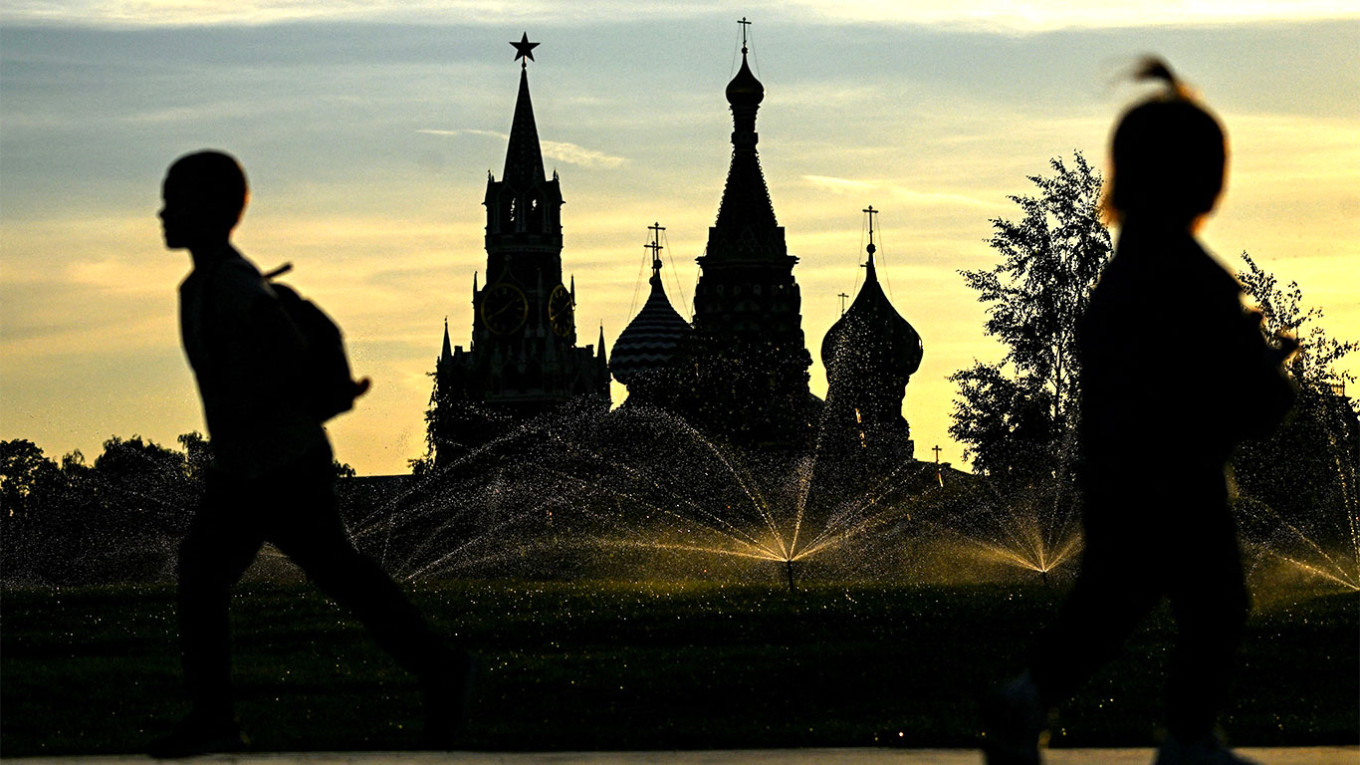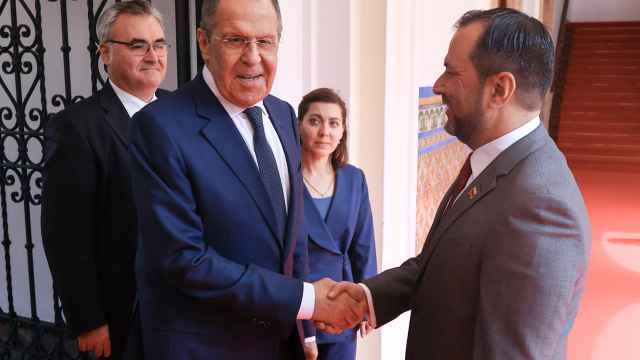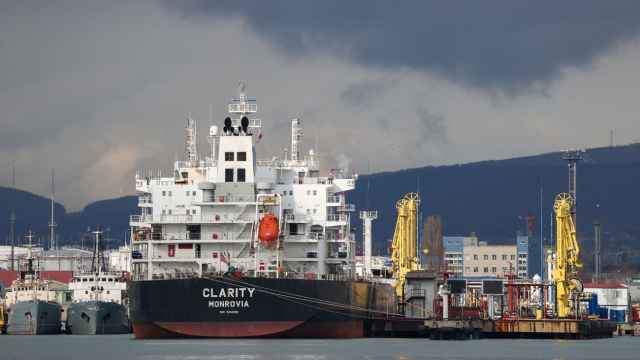The Czech president's comments on the need to put even more pressure on the Russian emigres who have alienated themselves from Putin's regime may not have been perfectly formulated, but they certainly do not deserve the emotional reaction it provoked in the liberal Russian community.
On the contrary, it is another reason to calmly and coolly examine the interim results of the Russian-Western confrontation during the Russian invasion of Ukraine.
While the Ukrainian military pushback against Russia and the level of Western military assistance to Kyiv are unprecedented (but still not enough to win solely by force), the non-military pressure on Russia, which is apparently designed to force the Kremlin to retreat, seems to be less thought out and less effective.
Over 13,000 international sanctions have been imposed on Russia, its companies and its citizens — more than have been imposed on Iran, Cuba, and North Korea combined — since its full-scale invasion of Ukraine.
While the Ukrainian military pushback against Russia and the level of Western military assistance to Kyiv are unprecedented, the nonmilitary pressure on Russia, which is apparently designed to force the Kremlin to retreat, seems to be less thought-out and effective.
International sanctions, which seriously limit the freedoms and opportunities of citizens and companies, are an extrajudicial measure. Their stated purpose is not to punish, but to inflict economic, regulatory and administrative pain on Russia to try and end the war as soon as possible: either by forcing concessions or by weakening the economy. It is from this perspective that the effectiveness — and overall meaningfulness — of the restrictions must be considered.
Unfortunately, the ideological and often emotional rhetoric, justifying the possibility and necessity of imposing and tightening sanctions, obscures the unsightly reality.
And the reality is that Russian society has survived the shock of sanctions, regrouped and rallied, and the regime is stable. There is nothing unique or indeed surprising about this. Since the mid-20th century, there has not been a single example of sanctions stopping a war or leading to regime change.
Unprecedented sanctions on Russia did not destroy its economy, just as they did not destroy the economies of other authoritarian regimes. Nor did they lead to the dismantling of those regimes — Saddam Hussein in Iraq, Muammar Gaddafi in Libya, Kim Jong Un in North Korea, Fidel Castro in Cuba, Chavez and Maduro in Venezuela, the ayatollahs in Iran.
In 2016, Andrei Lankov, a professor at Kookmin University in Seoul, assessed the outcome of Western sanctions against North Korea as follows: "There is reason to believe that the new round of international sanctions, the most serious in the history of the DPRK, ends up like the previous, not-so-serious attempts — a failure. It is possible that this failure should only be welcomed, because the "successful sanctions" may well have led to a famine in the DPRK but they would hardly have achieved their main goal which is to force the DPRK leadership to give up nuclear weapons. Most likely, this goal is now unattainable in principle, although the international community cannot and will not admit this sad fact."
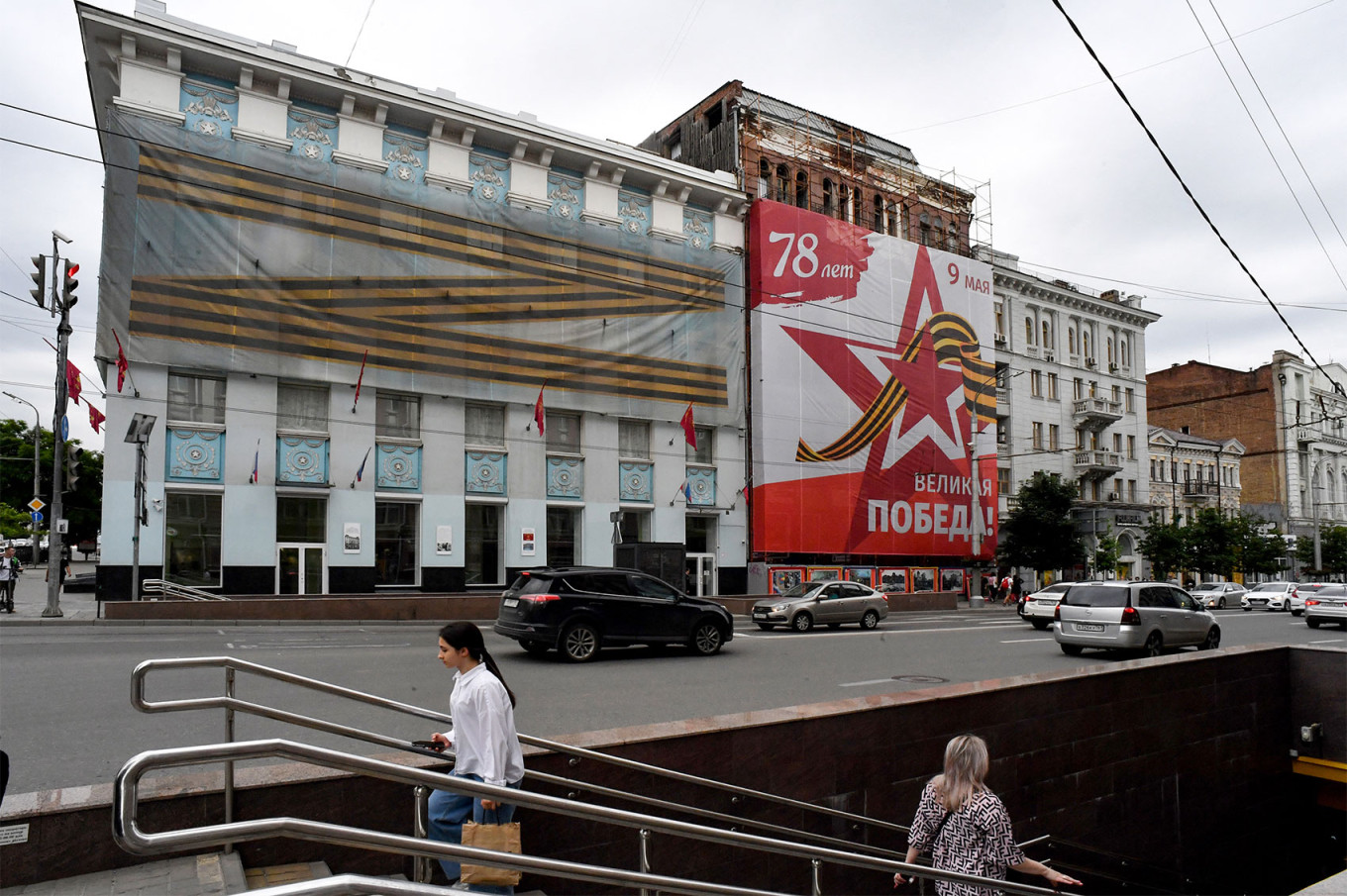
After more than a year of pressure on Russia and its economy from international sanctions, data points to only a relatively small weakening of the Russian economy. Both Russian and IMF data show that Russia's GDP fell by 2.1% in 2022. The forecast of economic decline in 2023 is minimal. Russia’s Central Bank predicts growth in the range of 2%. If we look only at international figures, the IMF forecasts a 0.7% growth for Russia in 2023. At the same time, the IMF expects 0.7% growth for France and 1.6% for the United States. For Germany, a drop of 0.1% is projected, and for the United Kingdom, too, a drop of 0.3%. China is projected to grow by 5.2% in 2023.
Let's look at inflation. Russia estimated its inflation for 2022 to be 11.9%. Inflation in the U.S. for the same year was 8%. In the U.K. — 9.07%, in Germany — 8.67%, in France — 5.2%. If we take the data for March 2023, Germany had inflation of 7.2%, in the U.K. 10.1%, in the U.S. 4.9%, in France 5.7%, and in Russia 3.5%.
These figures show that despite the sanctions pressure Russia is already coping better than other countries — in some cases better than the countries that imposed the sanctions. Of course, the transition of the Russian economy to a war footing has changed the economic structure but even independent scholars like Natalia Zubarevich have confidence in Russia’s economic recovery growth.
In the crucial oil-and-gas sector, Europe's rejection of Russian gas has led to a drop in gas revenues, but not a critical one. Russia is looking for — and finding — new markets. The oil price cap has reduced revenues but to a much lesser extent than this measure’s developers and analysts predicted, as India and China have taken over as the main importers of Russian oil.
Exports of Russian oil, oil products and gas in 2022 reached $383.7 billion, 43% more than the year before, according to independent media outlet Agentstvo. This is more than Russia’s entire spending in 2022 and an absolute record for 27 years.
The departure of foreign businesses and foreign manufacturers from Russia, which is not in itself a sanction but has certainly become one of the most visible elements of pressure on Russia, did not lead to the closure of the companies themselves. They have been bought with a huge discount (and sometimes fictitiously) by the managers of these companies and Russian businessmen. In fact, rather than put pressure on Russia’s economy, Western companies have gifted huge assets to businessmen affiliated with the regime and created huge business opportunities for them.
It’s also premature to talk about the complete departure of foreign business from Russia. This is evidenced by a recent study by iStories and analysis by Re: Russia. iStories estimates that only 20% of companies from so-called “unfriendly” countries have left Russia since the start of the war. The rest either have not been allowed to leave or don't want to. It’s also worth bearing in mind that even among the exits there were probably quite a few fake ones.

As for trade, most of the products that disappeared from Russian shelves after the invasion have returned thanks to parallel imports. Prices, of course, have risen, but not for everything. For example, iPhones in Russian online stores can now cost less than in Europe because they are shipped from Asia, where taxes are lower. Cinemas show Hollywood blockbusters by buying the rights from intermediaries and aggregators. A side effect of parallel imports has been the rapid economic growth of such countries as Kazakhstan, Armenia, Georgia, Turkey, Uzbekistan and Kyrgyzstan.
In other words, we can state that the main goal of sanctions — to force Russia to stop its aggression by weakening its economy — has not been achieved.
Far more important, however, is the failure of Western sanctions and Western policymaking when it comes to dealing with people with Russian passports. Individual sanctions were designed to split the Russian elite and lead to the overthrow of Putin. In reality they have led to a "lockdown" of Russia — and, as a consequence, a consolidation of human capital within it.
The necessity of expanding and strengthening sanctions against the Russian economy and personal sanctions against the beneficiaries of Putin's criminal regime are not in question. However, I am convinced that the decision-making behind sanctions against big business owners must become clearer, more transparent and, above all, more logical and, yes, selective.
There are examples of major businessmen from the top 100 of the Russian Forbes list who condemned the war, lost most of their assets in Russia, left Russia and were hit by Western sanctions anyway, such as Oleg Tinkov and Sergei Petrov. Personal sanctions are being used as punishment. But both economic theory and law say they should be used as a tool of pressure. Top businessmen must realize that it is not impossible to get personal sanctions imposed on them lifted.
The expectation of regime change via an elite split, similar to those seen in the dictatorships of the last 70 years, is inherently wrong for Russia. According to research by Erica Frantz, a professor of authoritarian regimes at the University of Michigan, personalist autocracies are the least likely to transform into democracies. Her research suggests that, if a leader has been in office for 20 years or more, like Putin, the most likely reason for his or her departure is natural death in office.
"After being in power for so long, the likelihood of coups is very low. Not since the end of the Cold War has there been one. So in long-living regimes one cannot count on someone from the inner circle attempting to overthrow the leader. Usually even after his death the elites unite around his figure and decide to stay the same course," Frantz argues.
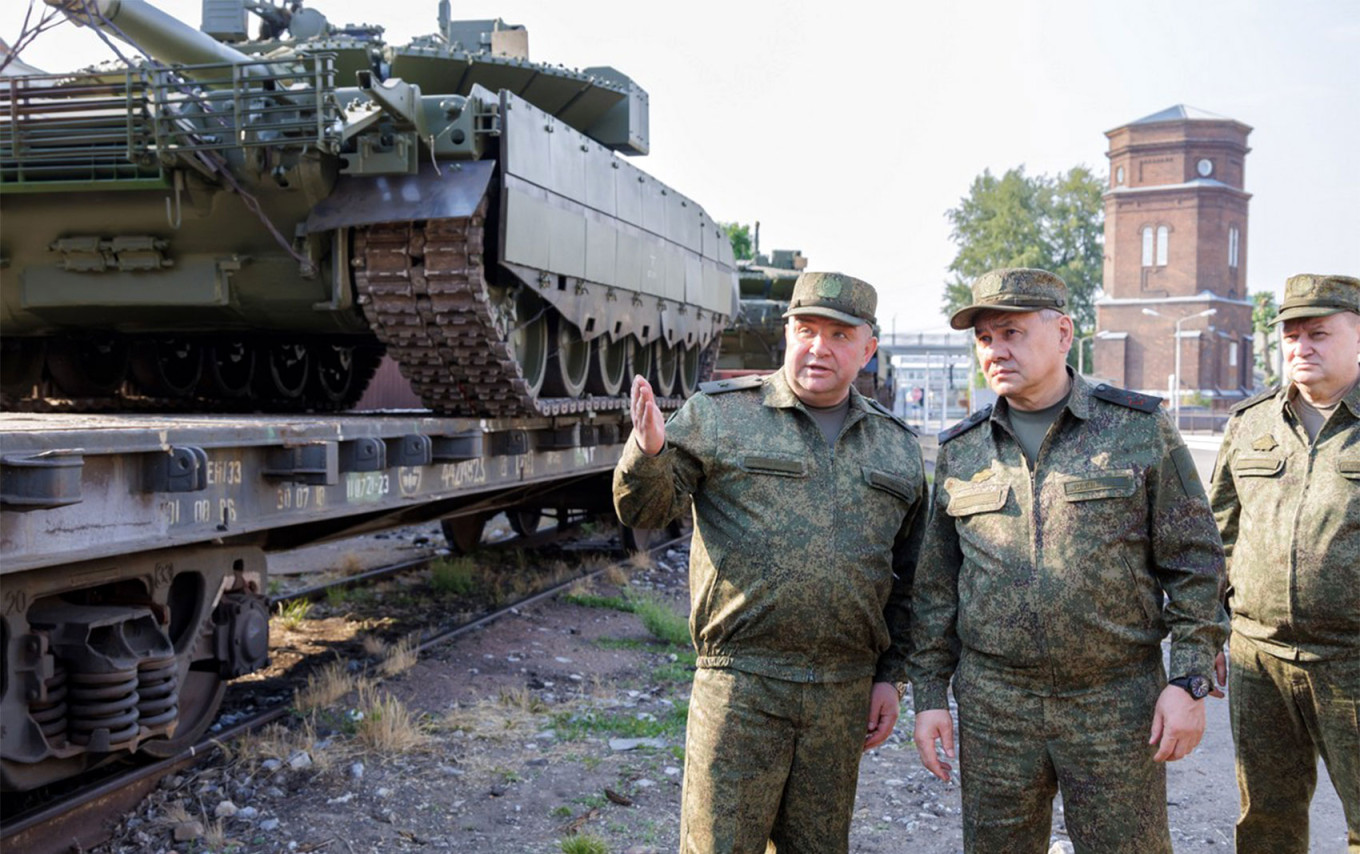
In other words, the rhetoric justifying "clamping down on the elite" as a way of increasing the chances of a coup is not factually substantiated. A far more effective strategy would be providing the most "valuable" segments of the population with an exit strategy from the closed system and incentives to export capital.
Let's take a closer look at Russian emigration in the 16 months of the war. According to various estimates, between 500,000 and 1.3 million people left Russia in 2022. According to demographer Alexei Raksha, this departure was divided into two waves: 150,000 left after the start of the full-scale invasion and 350,000-650,000 after the announcement of mobilization in September.
Most of those who left were from Russia’s middle or upper classes. If such people leave the country by selling assets, even at a discount, they will not become a burden on the host countries' social systems, and they will have enough time to adapt there, find new sources of income and build new social ties. In addition to the loss of human capital, this also means the removal from Russia of several hundred billion dollars that would, one way or another, end up in the economies of the Western world instead of being used to prop up the Putin regime.
The Russian authorities understand — and fear — the danger of the loss of human capital. On May 12, Putin signed a decree changing Russian migration law that is believed to be part of an attempt to stop Russians from moving abroad.
The international community should be extremely interested in this migration outflow that Putin is trying to stop. The West needs to be smart. The focus should be on Russia’s educated and wealthy who are more inclined toward and actually yearning for freedom of movement, of entrepreneurship, and protection of private property.
The task of the West should be to "lure" such people out of Russia and deprive the Putin regime of their tacit support. However, this is obviously not seen as a priority by the Western community. On the contrary, visa and financial restrictions have made the costs for Russians who are trying to leave very high, if not prohibitive.
These restrictions are widely known to anyone trying to get out of Russia, but perhaps the full picture is not obvious to Western audiences.
The first group of restrictions concerns visas. Russians in Russia can no longer obtain visas to most European countries. Some countries (like Italy, Greece, France and Spain) continue to issue Schengen C visas, i.e. tourist visas, for short periods. But all EU countries bordering Russia have closed entry by land from Russia on this type of visa. It has also become extremely difficult to obtain Schengen D visas (work visas) in the consulates and visa centers of EU countries, the U.S. and the U.K. located inside Russia. In addition, obtaining and extending residence permits in Europe is hard, sometimes impossible.
The second group is work permits. Some countries, such as Estonia, Latvia, Lithuania, Poland and the Czech Republic, have practically stopped issuing work permits to Russian citizens at the request of local companies. In other countries this procedure has also become more complicated. In the West there are now almost no programs to attract Russian students, scientists, IT specialists, designers, managers and entrepreneurs. On the contrary, some countries have banned labor migration from Russia, including scientists and other highly educated people.
The third is banking restrictions. EU, U.S. and U.K. banks have stopped opening accounts for Russian passport holders. In addition, the Visa and MasterCard payment systems have exited Russia. In a world of digitized money, this creates difficulties for those leaving Russia to access their savings in Russian banks.
The fourth group concerns currency restrictions. Even if a Russian passport holder manages to obtain a visa or a residence permit in the U.S. or Europe, they cannot open an account in a local bank or deposit money legally accumulated in Russia, including from the sale of assets — businesses, apartments or land. Many Western banks refuse to accept such transfers even with documents proving the money’s legal origin. Such restrictions also apply in Israel and new Israeli citizens are unable to repatriate capital.
All these restrictions have resulted in the fact that capital and its owners (the elite and upper middle class) have largely remained in Russia during the war or even returned after some time abroad. However, here a question arises about support for the war and how many people really want to leave Russia permanently.
Polls suggest that there are at least 11 million Russians who would like to move abroad. By any reckoning, the same or a larger proportion of the population does not actively support Putin's policies and the war in particular. And even if only one-fifth of these likely coinciding groups are willing to leave the country along with their money — to Putin, this is still perhaps the most tangible blow to both technology and governance, as well as finance. Creating incentives for these people — and their money — to exit Russia could cause a shortage of specialists, including in the defense industry. However, there are almost no such incentives currently. Some countries offer “talent visas,” but there is no such thing for promising entrepreneurs. And talent visas are given out rarely: since 2020, 445 Russian citizens have been given such visas in the U.S., and 502 in the U.K.
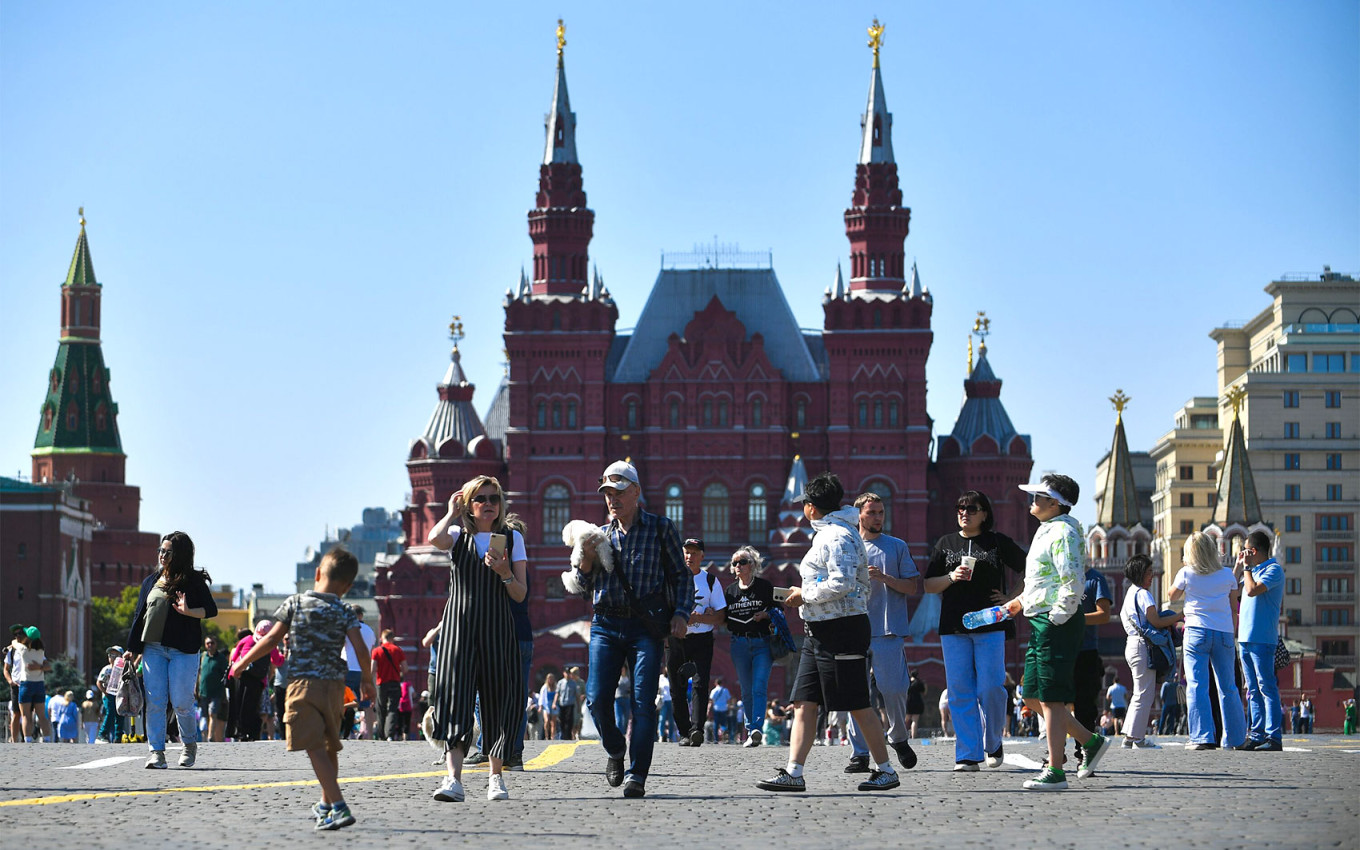
Some express concern that a policy of "poaching" Western-oriented Russians could prove so dangerous to Russia's economy that it would lead to the Kremlin closing Russia’s borders and doubling down on authoritarianism. This cannot be ruled out. But the experience of many countries, including the Soviet Union, shows that, if this did happen, the dissatisfaction of Russians would be refocused on the authorities inside the country.
If the current trend of international sanctions turning Russia into something resembling North Korea continues, the war will go on for a very long time and Russia will drift further toward China for economic and geopolitical support, which is bad news for the free world.
It seems that it is time to decide what is more beneficial to the civilized world. Is it to continue implementing a blanket sanctions regime without selectivity or nuance, thus corralling within the murderous Putin regime a large number of individuals with brains and capital who hate this regime? Or is it to deliver Mr. Putin and his clique a double whammy of giving these individuals and, importantly, their children, an opportunity to start a new, productive life outside of Russia, helping their new adopted countries prosper, and at the same time deprive the regime of a large chunk of human capital and financial resources which would otherwise be used to prolong the war at the heart of Europe? I think the answer is obvious.
The erosion of Soviet ideology and the collapse of the Communist empire was caused not only by internal problems, economic inefficiency and technological and cultural failures, but by the positive scenario Soviet people had in their minds: an image of the collective West with its all-encompassing freedoms, an image of a world built on justice and opportunity. This image is still very powerful.
And although Russian society as a whole has proven incapable of becoming part of this world order so far, this does not mean that its most active and pro-Western segment should not be integrated — not for reasons of justice or kindness, but for quite pragmatic benefits and to accelerate the fall of Putin's regime.
A Message from The Moscow Times:
Dear readers,
We are facing unprecedented challenges. Russia's Prosecutor General's Office has designated The Moscow Times as an "undesirable" organization, criminalizing our work and putting our staff at risk of prosecution. This follows our earlier unjust labeling as a "foreign agent."
These actions are direct attempts to silence independent journalism in Russia. The authorities claim our work "discredits the decisions of the Russian leadership." We see things differently: we strive to provide accurate, unbiased reporting on Russia.
We, the journalists of The Moscow Times, refuse to be silenced. But to continue our work, we need your help.
Your support, no matter how small, makes a world of difference. If you can, please support us monthly starting from just $2. It's quick to set up, and every contribution makes a significant impact.
By supporting The Moscow Times, you're defending open, independent journalism in the face of repression. Thank you for standing with us.
Remind me later.



